Written by Social Worker and Psychosexual Therapist Candice Care-Unger.
When society talks about rehabilitation, we often think of physiotherapists in the gym practicing exercises. We think of mobility training and regaining independence, with images of people learning how to walk again often in the spotlight.
One of the less highlighted areas of rehabilitation is sexuality post-injury, illness, or disability. Sexuality is a central aspect of being human throughout life and encompasses sex, gender identities and roles, sexual orientation, eroticism, pleasure, intimacy, and reproduction. Experienced and expressed in many ways including thoughts, fantasies, roles, and relationships, many aspects of sexuality can change after a catastrophic injury, but sex, intimacy and sensuality doesn’t end.
Addressing sexuality after injury has been well-documented in peer reviewed literature as best practice, yet research shows that less than 15% of clinicians working in rehabilitation feel confident talking about sexuality with their patients. How best can we support our clients with sexuality issues after injury if so, few clinicians are talking about it?
Research shows that for patients who are living with illness, injury or disability, sexuality is an important topic where they would like support, yet many report it continues to be a neglected issue in rehabilitation. Setting out to address this need is leading rehabilitation and disability service provider Royal Rehab. Through our newly established Sexuality Service, we are providing holistic rehabilitation which integrates sexual health. The service provides psychosexual therapy, often referred to as sex therapy, alongside traditional allied health, nursing and medical therapies, to deliver a true multidisciplinary approach.
Psychosexual therapy is a talking therapy and a specialised form of counselling that deals with problems primarily related to sex, sexual health, and sexuality concerns. Psychosexual therapy is for singles and those in relationships regardless of age or physical impairments. It addresses many aspects of pleasure, regaining sexual confidence and the functional aspects of human sexuality in partnership with medical, nursing and other allied health disciplines. Psychosexual therapy is part of Royal Rehab’s rehabilitation team, and our psychosexual therapists are qualified health professionals who have postgraduate, specialist qualifications in psychosexual therapy and are members of the Society of Australian Sexologists (SAS).
When there is a dedicated rehabilitation team member who is willing, able, and wanting to address sexuality then the whole rehabilitation team becomes more confident talking about the topic, knowing they can refer anything outside their scope of work to their colleagues and together, the team will continue to support clients. Helping clients achieve their rehabilitation goals takes a team approach so it made perfect sense to include psychosexual therapy as part of our rehabilitation team.
Integrating sexual health into rehabilitation is essential for holistic care and with that, the taboo of sexuality is long gone.
If you’re looking to upskill your team across a wide range of sexuality topics, the Royal Rehab Sexuality Service offers online training tailored to your organisation as well as one day workshops onsite at Royal Rehab Ryde campus.
For more information, call us on 02 9808 9205 or visit royalrehab.com.au/sexuality-training-and-education-for-clinicians
Reference
- World Health Organization. Defining Sexual Health: Report of a Technical Consultation on Sexual Health. 28-31 January 2002. Geneva: WHO, 2006.
- McGrath, M., Lever, S., McCluskey, A., et al.: Developing interventions to address sexuality after stroke: findings from a four-panel modified delphi study. J. Rehabil. Med. 51(5), 34–42 (2019)
- Stein J, Hillinger M, Clancy C, Bishop L. Sexuality after stroke: patient counseling preferences. Disabil Rehabil 2013; 35: 1842–1847.
- Park JH, Ovbiagele B, Feng W. Stroke and sexual dysfunction – a narrative review. J Neurol Sci 2015; 15: 7–13.
- Rosenbaum T, Vadas D, Kalichman L. Sexual function in post-stroke patients: considerations for rehabilitation. J Sex Med 2014; 11: 15–21.
- Desiree Latella, Maria Grazia Maggio, Rosaria De Luca, Giuseppa Maresca, Denise Piazzitta, Francesca Sciarrone, Luigi Carioti, Alfredo Manuli, Placido Bramanti, Rocco Salvatore Calabro, Changes in sexual functioning following traumatic brain injury: An overview on a neglected issue, Journal of Clinical Neuroscience, Volume 58, 2018, Pages 1-6,
- Auger, LP., Pituch, E., Filiatrault, J. et al. Priorities and Needs Regarding Sexual Rehabilitation for Individuals in the Subacute Phase Post-stroke. Sex Disabil 38, 653–668 (2020).



